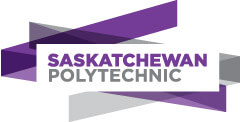About Industrial Mechanics Certificate in Saskatchewan Polytechnic
Program Overview
If you like working with machinery, enjoy solving mechanical problems and are good with your hands, check out Saskatchewan Polytechnic’s Industrial Mechanics program. You’ll get the basic knowledge and skills you need to install, repair, overhaul and maintain stationary, industrial machinery and mechanical equipment.
Demand for industrial mechanics—also called millwrights—is high across western Canada. Oil & gas and mining are big employers, but there’s also demand in manufacturing, milling, power generation and chemical plants.
Industrial Mechanics is a one-year certificate program offered at Saskatchewan Polytechnic Saskatoon campus and Saskatchewan Polytechnic Prince Albert campus. Working in well-equipped shops with highly qualified instructors, you’ll get practical, hands-on training in:
- basic math, drafting and blueprint reading
- basic welding, fabrication and installation
- conveyance systems, pumps and pipe fitting
- mechanical components
- preventative maintenance
- using tools of the trade
50% Shop Time, 50% Class Time
Hands-on learning means you’ll spend much of your time applying what you learn in Saskatchewan Polytechnic’s well-equipped shops. Strong industry support for our students means you’ll work with the latest tools and equipment. You’ll also get a chance to apply your skills during a two-week work experience.
Apprenticeship Credit
With this Saskatchewan Polytechnic credential, you may be eligible for credit towards apprenticeship training. To learn more, contact the Saskatchewan Apprenticeship and Trade Certification Commission (SATCC).
Career and Salary Information
Your Career
Saskatchewan Polytechnic Industrial Mechanics graduates work in many different industries: oil and gas, mining, milling, manufacturing, power generation and processing. Wherever mechanical equipment and machines need to be installed, repaired, overhauled and maintained, there is work for industrial mechanics and millwrights.
Academic qualification equivalents:
- Secondary School Diploma or equivalent, include one English, Grade 12 (ENG4C or ENG4U), minimum 60%
English language requirements (one of the below):
- IELTS : Overall minimum score of Band 6.5 with a minimum score of 5.0 in each component.
- TOEFL : An overall minimum score of 81 on the Internet-based Test of English
- PTE : A minimum score of 63 with minimum component scores of 50.
Saskatchewan Polytechnic Highlights
| Type |
Public |
| Campus Setting |
Urban |
| Application mode |
Online and Paper mode available |
| Graduation rate |
62% |
| Acceptance rate |
96% |
| Number of Students |
16,008 |
| Overall cost of living |
14,762 CAD |
| Academic calendar |
Semester based |
| % of International students |
6% |
| Number of campuses |
4 |
| Medium of instructions |
English |
| Undergraduate Tuition fee |
14,044 CAD |
| Postgraduate Tuition fee |
16,426 CAD |
| Cost of living |
694 -1147 CAD per month |
Saskatchewan Polytechnic First-Year Tuition Fees And Living Expenses For International Students
Over the course of one academic year, the following graph displays tuition and living expense estimates in Canadian currency for one full-time international undergraduate student. Please bear in mind that these are only estimates; actual pricing will vary depending on your needs and preferences. Other factors to consider include currency changes, visa and study authorization fees, and vacations back home.
- For international students, the overall fees will range from:-
| Particulars |
Amount |
| Administrative fees |
50.00 to 150.00 CAD |
| Application fees |
150 CAD |
| Student association fee |
95.00 to 445.00 CAD |
| Non-refundable fee at the start) |
1,000 CAD |
| Tuition fee range |
6,195 to 18,089 CAD |
| Laboratory fee |
100.00 to 409.00 CAD with no fees for
some courses which do not have a lab service. |
| Books and Supplies |
200 to 3,725 CAD |
| Technology fee |
50 to 146 CAD |
- For a student of Saskatchewan Polytechnic the required financials (Cost of Attendance) can be:-
| Description of Financials |
Amount in CAD |
| Average cost of tuition |
11245.77 CAD |
| Cost of living |
10799.39 CAD |
| Application fee |
150 CAD |
| Estimated total (per year) |
22,195.16 CAD |
